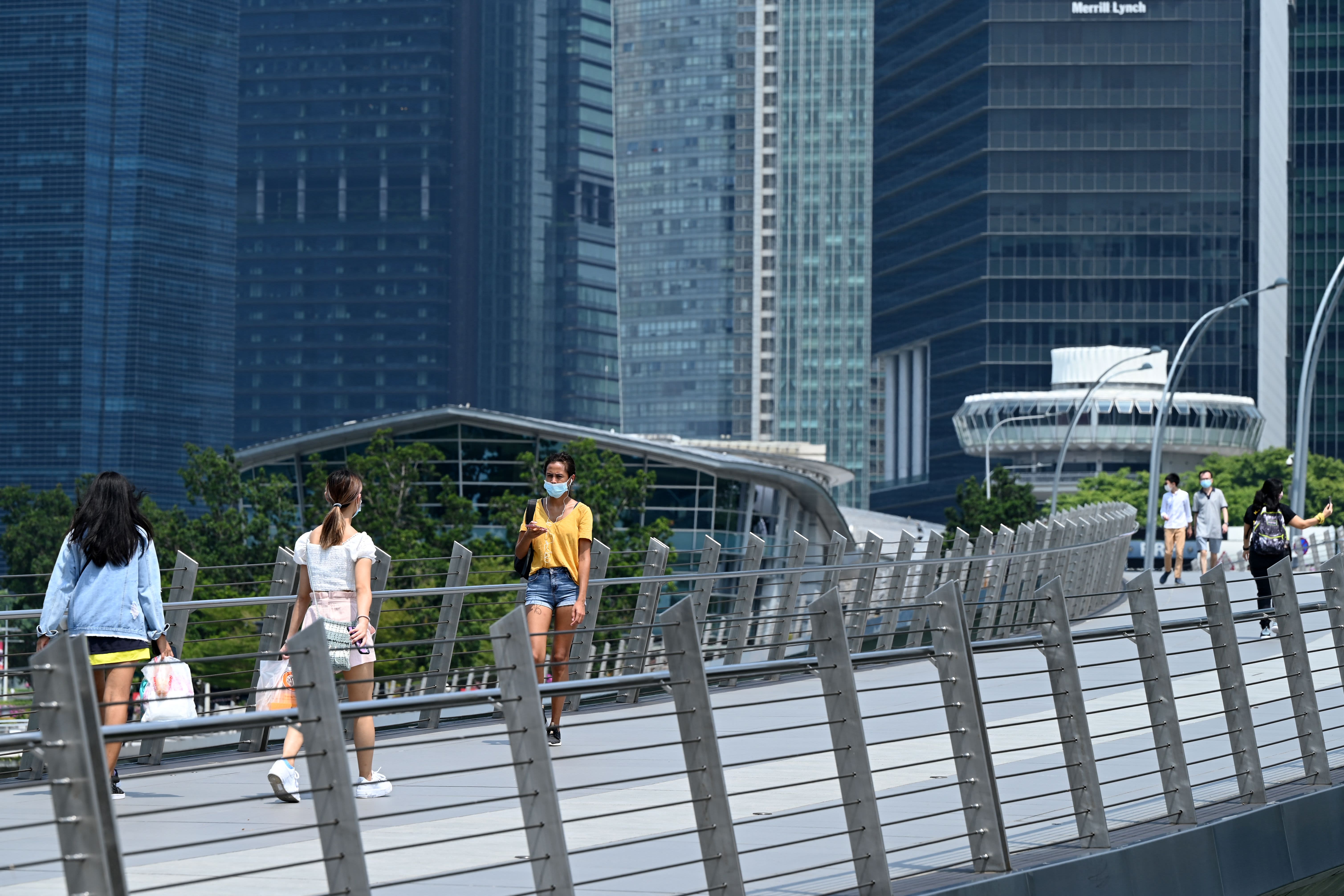SINGAPORE — Singapore aims to immunize 75% of its population by early October so that it can gradually ease border restrictions as the coronavirus turns into an endemic over time, its trade minister Gan Kim Yong told CNBC on Tuesday.
“Covid-19 is likely to be endemic in time to come. That is why vaccination is so important. Because, transmission will continue and you will face a new variant from time to time as the virus mutates,” Gan told CNBC’s “Squawk Box Asia.“
He said the goal is to inoculate at least two-thirds of the country by Aug. 9, when Singapore celebrates its National Day, which marks the country’s independence after separating from Malaysia in 1965.
Data from scientific publication Our World In Data showed that nearly 37% of Singapore’s 5.6 million population had been fully vaccinated as of July 3. It’s a significantly higher percentage compared to more populous neighbors like Malaysia and Indonesia, which have respectively fully vaccinated nearly 8% and 5% of their populations.
Vaccines can help to limit transmission to some extent and help reduce the severity of disease, according to the minister. That ensures Singapore’s hospitals and medical facilities are not overwhelmed and would allow the country to “continue to live with Covid-19.”
Singapore’s national vaccination program administers shots from Pfizer and Moderna, but some private clinics have been allowed to administer Sinovac for those who prefer the Chinese-made vaccine.
Travel corridors and reopening borders
The vaccination rate will be an important marker for easing border restrictions to allow non-resident travelers into Singapore, according to Gan.
“We hope that we will be able to cover 75% or more (of the population) by the end of September or early October. At that time, then we will be able to make a bigger move in opening up our borders to allow more visitors to come to Singapore, both business as well as leisure,” Gan added.
Discussions of setting up travel corridors with the likes of Hong Kong and Australia have not been able to produce any concrete outcomes so far this year.
An air travel bubble agreement would have allowed people from either Hong Kong or Australia to travel to Singapore and vice versa without the need for quarantine.
“We have decided to avoid calling it a travel bubble because it tends to burst,” Gan said. “We will continue to do our best to discuss with our partners, and discussion is progressing.”
Singapore and its partners need to be ready for potential travel corridors by ensuring infection rates remain low and vaccination rates are high, Gan said.
The city-state has plans to conduct trials where it will allow vaccinated travel between Singapore and several other destinations, he added. Initially, it will be done in small groups to test the process and if those efforts succeed, it would be scaled up to allow more travelers into the country, said Gan.
“This will be very important for us to do so in a safe way, to build confidence and to allow us to refine our measures and our process to ensure that we are able to continue to keep Singapore and our visitors safe,” he added.
Easing restrictions further
Singapore tightened restrictions in May when locally transmitted cases rose and the highly contagious delta variant was detected in the city-state. Some of those strict measures included a ban on dining in at restaurants and food establishments and limiting public social gatherings to two people.
Some of those measures have since been eased as cases now remain under control, with only a handful of unlinked community infections being reported every week.
We always believe that we need to strike a very careful balance between protecting lives on one hand as well as preserving livelihood on the other.Gan Kim YongMinster for trade and industry
“We need to be careful and take a cautious approach, even as we open up our economy and our community,” said Gan, who was the former health minister and remains the co-chair of Singapore’s Covid-19 taskforce.
“This is to ensure that we are able to continue to keep public health under control, keep Singaporeans safe,” he said, adding, “We always believe that we need to strike a very careful balance between protecting lives on one hand as well as preserving livelihood on the other.”
If things continue to progress steadily, Gan said Singapore will allow in-person dining of up to five people from July 12. At the moment, only groups of two are allowed to dine together outside homes.
